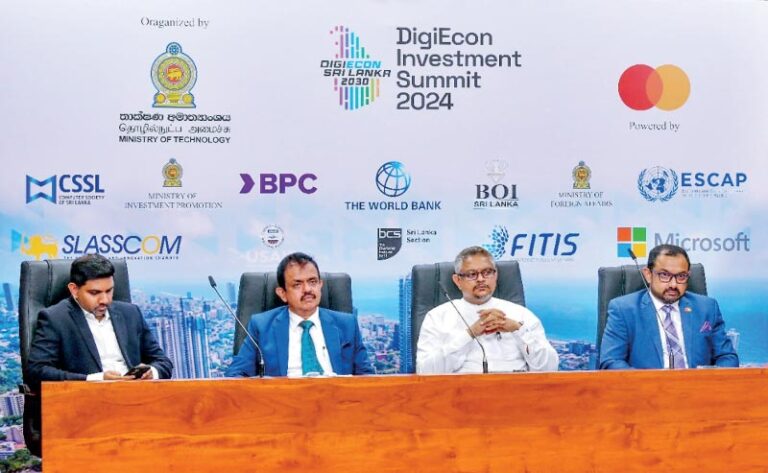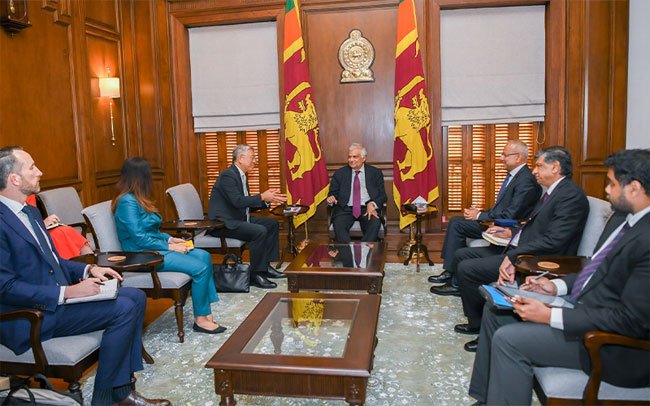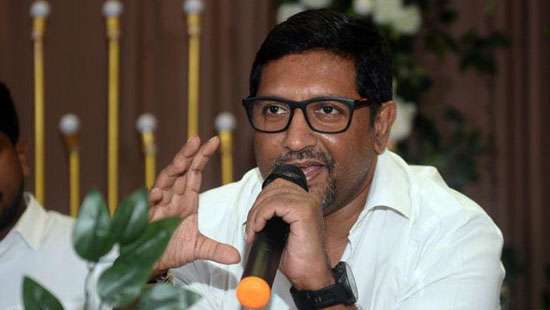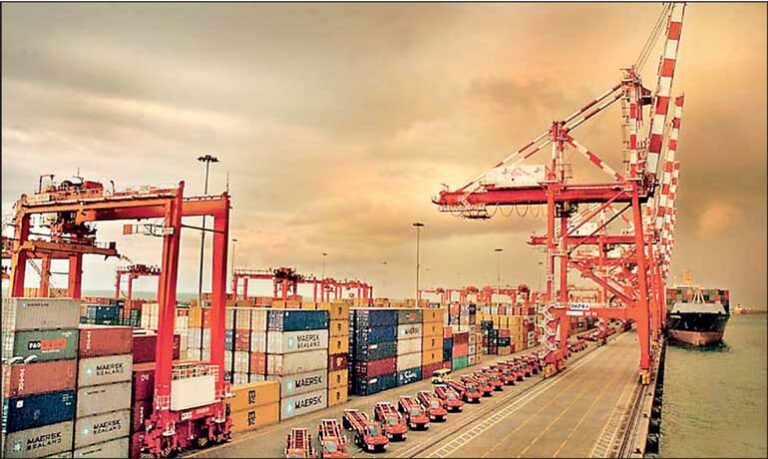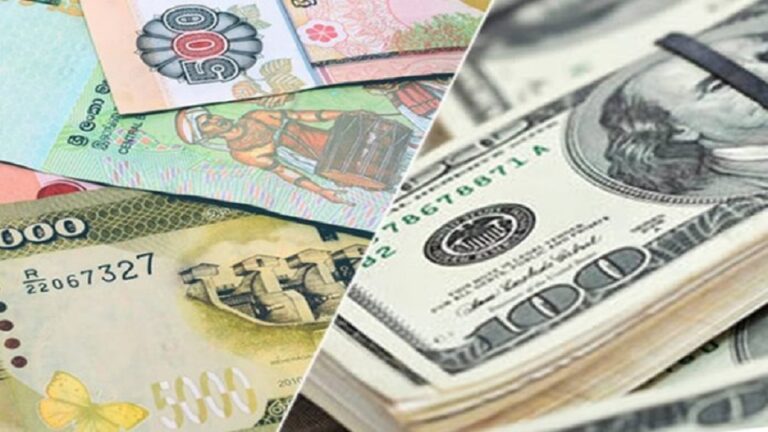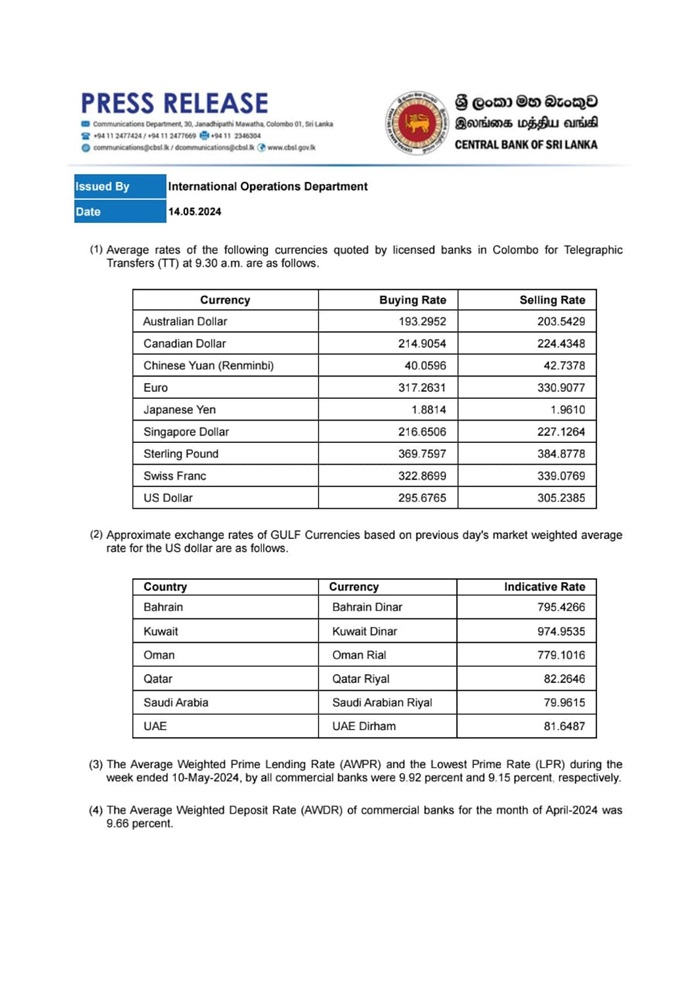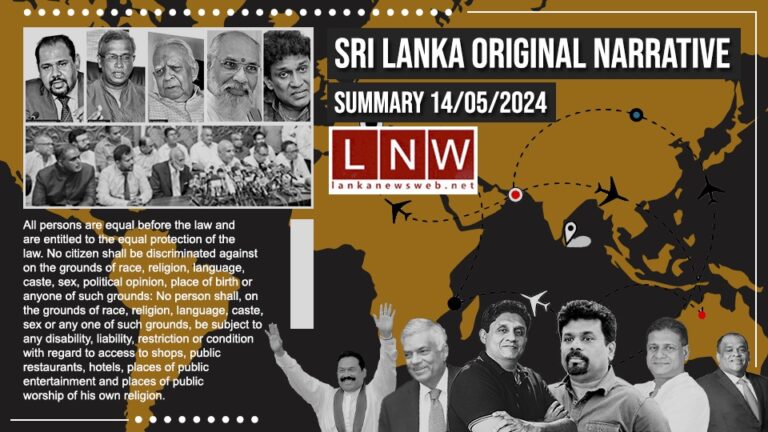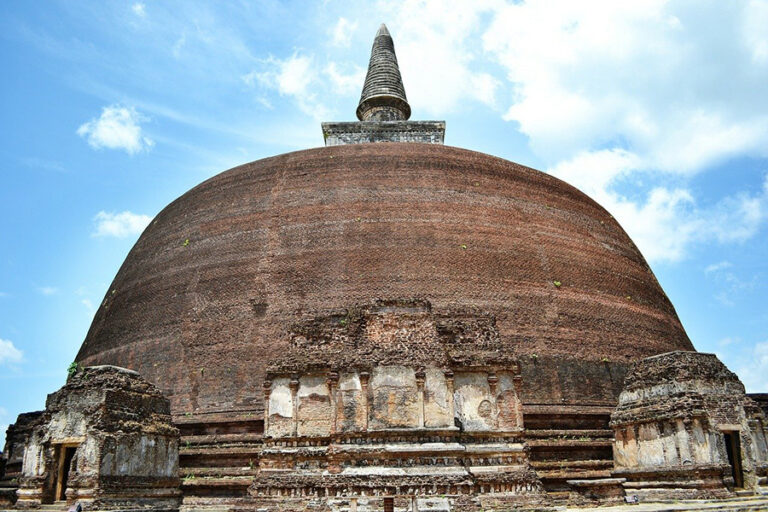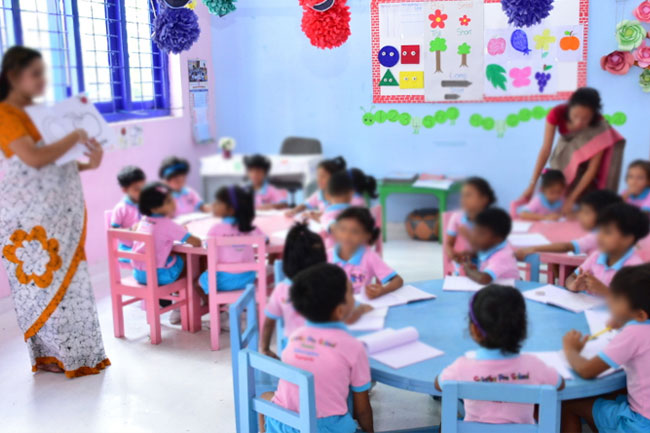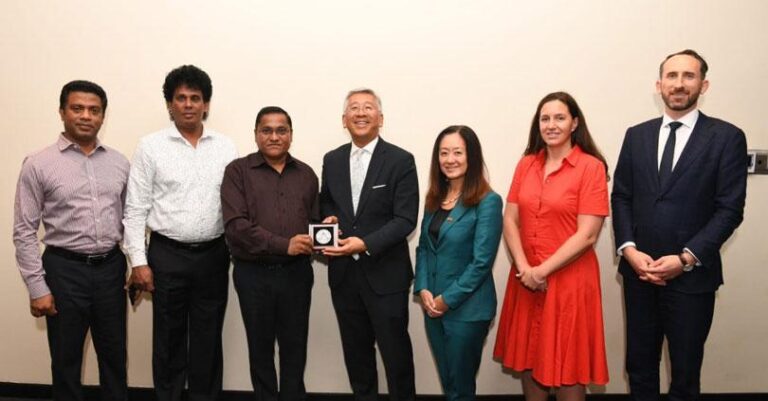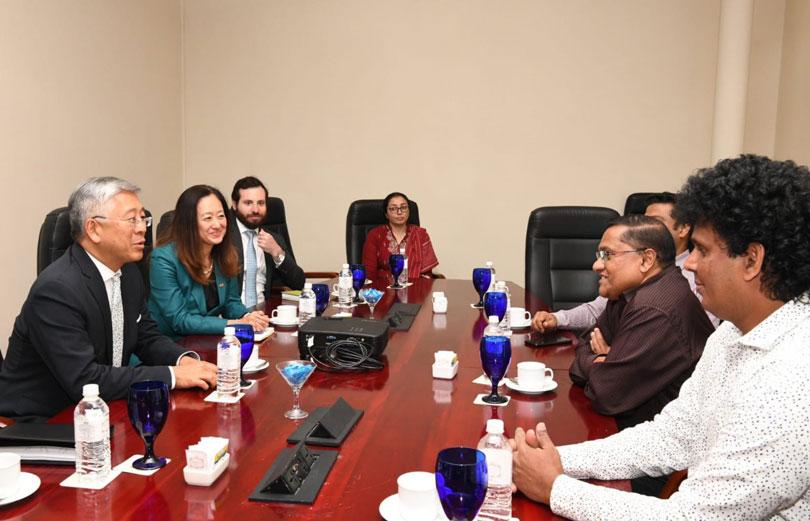By: Staff Writer
May 14, Colombo (LNW): The Technology Ministry has collaborated with Mastercard for the DigiEcon Global Investment Summit 2024, which is aimed at catalysing the country’s economic resurgence by encouraging collaborations between global investors, industry leaders, entrepreneurs, and policymakers.
Scheduled to be held on 25 June, the summit will focus on connecting domestic and foreign investors with Sri Lanka’s leading tech startups, allowing them to showcase their innovative products and services.
It will also facilitate knowledge sharing between the Government and industry, thereby supporting the vision of Sri Lanka becoming a digital-first nation.
The summit will include a host of activities, such as keynote addresses by subject matter experts, panel discussions involving Government and industry representatives, and one-to-one interactions between investors and startups.
The event will delve into subjects, such as emerging technologies, fintech, and the potential of the digital economy.
State Minister of Technology Kanaka Herath said, “The DigiEcon Global Investment Summit 2024 is a great opportunity to represent Sri Lanka as a prime investment destination for digital innovation.
The event will provide a strong platform to facilitate efficient knowledge exchange and provide a fillip to the country’s economic progress through digitalisation and investment opportunities. We look forward to welcome global dignitaries and industry leaders to explore the vast opportunities our tech ecosystem has to offer.”
Mastercard Country Manager – Sri Lanka and Maldives Sandun Hapugoda said: “With immense potential to drive tech advancements across sectors, Sri Lanka is on the verge of a digital transformation that will fuel its economic growth.
Mastercard is proud to collaborate with the Ministry of Technology to support DigiEcon Global Investment Summit 2024 as it will promote innovation and collaboration within the country’s tech ecosystem, he added.
DigiEcon Global Investment Summit 2024 will focus on connecting domestic and foreign investors with Sri Lanka’s leading tech startups, allowing them to showcase their innovative products and services.
It will also facilitate knowledge sharing between the government and industry, thereby supporting his summit is a must-attend for investors, innovators, and policymakers interested in Sri Lanka’s thriving tech scene.
The Ministry of Technology of Sri Lanka is organizing the event in association with the Ministry of Foreign Affairs, Sri Lanka Ministry of Investment Promotions & also Finance Ministry. The event will be powered by Mastercard and the industry partners for the event will be Computer Society of Sri Lanka (CSSL), BCS The Chartered Institute for IT (Sri Lanka Section), SLASSCOM and FITIS.the vision of Sri Lanka becoming a digital-first nation.


